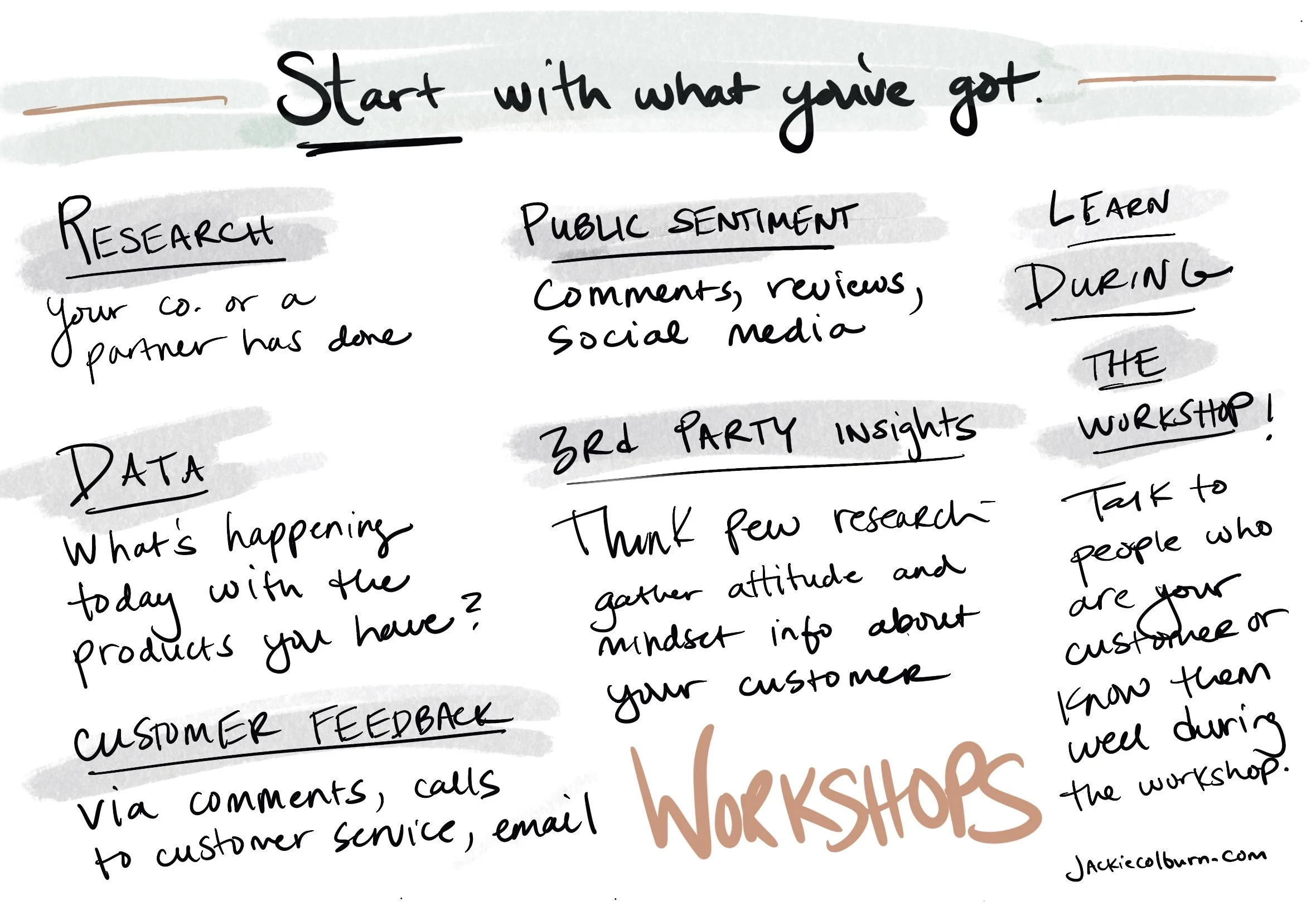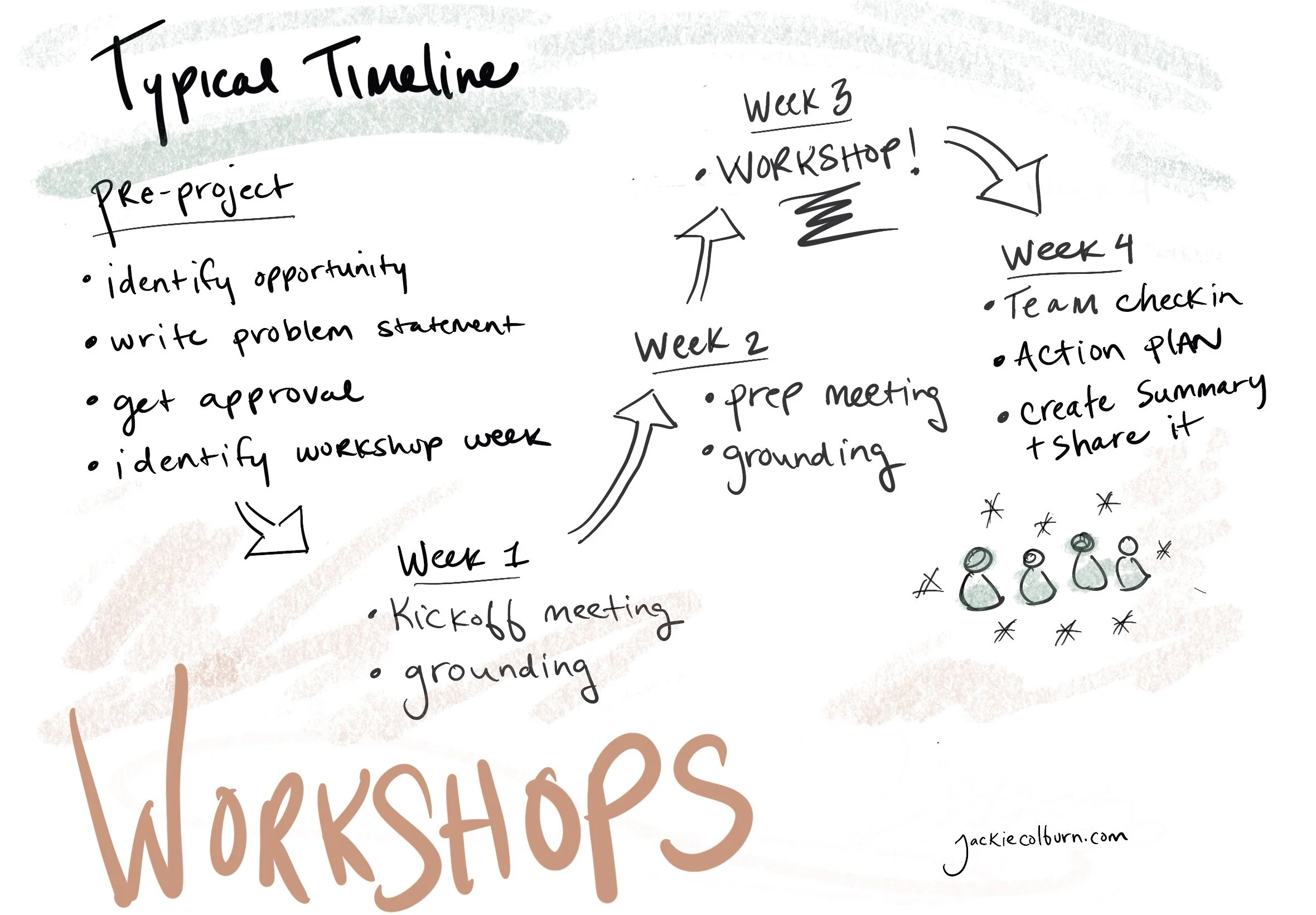Learn to lead more impactful workshops
What does a workshop need in order to shift from good to great? How do you ensure the team leaves with many fruitful outcomes rather than a few OK options?
Leading impactful workshops starts with a strong facilitation skill set that plays to people’s strengths, manages against biases, and leads with humility. When you make a few adjustments to how you lead and prepare, the result is a more productive and aligned group. Here’s how:
1. Pictures > Words
From visual aids to sketching exercises, imagery is a major asset during workshops. Words, while powerful, can also be abstract and up for interpretation. For example, when I take my groups through a prototyping exercise I ask them to sketch their ideas and stick them up on the wall rather than write them out. What follows is a discussion around the concept’s merit, not an effort to create a shared understanding of words.
Another great reason to employ imagery is the opportunity to keep ideas anonymous. I might ask a group to submit their sketches to me directly, then share them out with the full team for a fair review. It solves for the bias that results when senior leadership or the loudest group members share their ideas aloud. This concept also extends to your visual aid, whether it’s the physical whiteboard or a slide deck. Too many words can be a crutch, so try swapping language for imagery to help the group stay engaged.
2. Start with what you‘ve got
It’s important to get a clear sense for who the customer is and the problem you’re trying to solve before you dive into the work. That said, sometimes folks fail to get started on a project out of fear that they don’t have enough background information, or that they haven’t spent enough time with the data. This is a good reminder for both facilitators and their teams: You don’t need to spend a ton of time and money on research just to get started. In fact, you likely already have a lot of good insights you can bring to the table, including:
3. Be prepared
This might sound obvious, but you should always show up to a workshop having done your own homework. That might mean curating background information and insights to ground the team at the start of the workshop. It also means getting clear on the expected outcomes and logistics for a session. I use my own worksheet template beforehand to get organized (you can download a clean version for yourself at the link!). It could mean making sure your team is adequately prepared for the workshop, and that you’ve communicated your expectations of them. Or, perhaps it entails getting granular about your own timeline for the project with deadlines and milestones (separate from the one you share externally). Taking these necessary steps allows you to show up better for yourself and your team.
4. Invest in your own education and training
Like any career, continued learning is important for cultivating new skills, ways of communicating, and so much more. Looking to deepen your interpersonal skills, like helping people feel more comfortable in meetings? Or maybe you’d like a brush up on best practices? There are plenty of articles, seminars, conferences and videos available to help you sharpen your skill set. Plus, many facilitators also coach teams and individuals who want to learn to lead more effectively (myself included!). Set a goal to read a few new articles a week, or one new book a month on a relevant topic. The power to learn is in your hands!
Leading more impactful workshops starts within the realm of what you can control, like your own preparedness and, above all, the ability to approach everything with humility. Adopting this mindset starts with you, though the benefits and improved outcomes will be felt ten fold by your participants.


